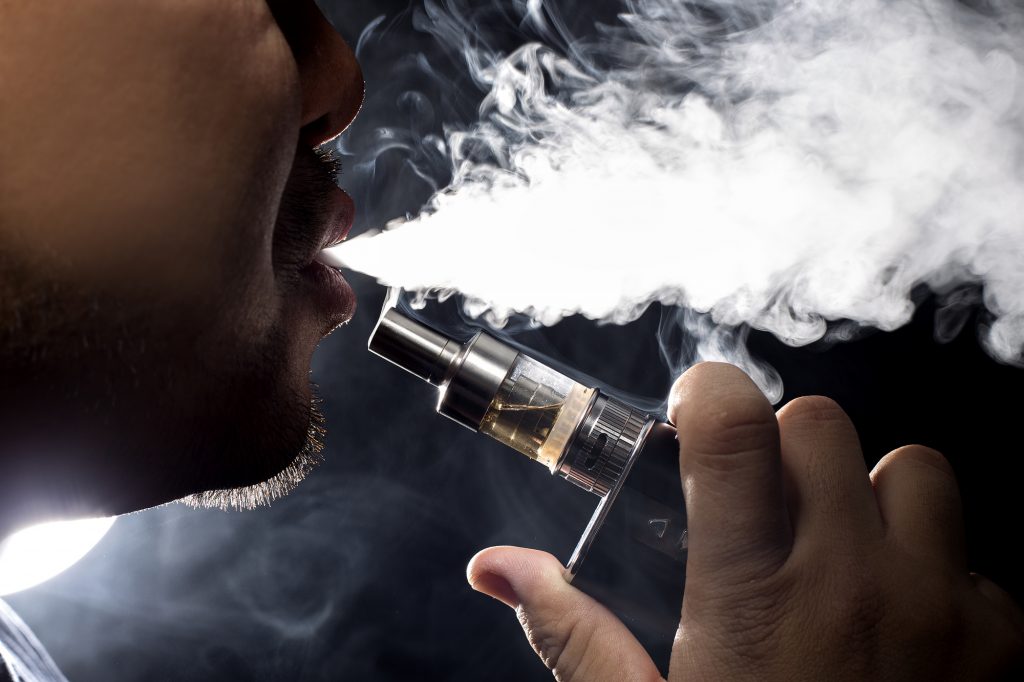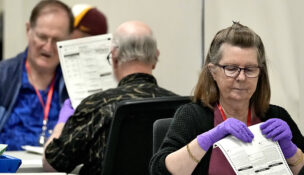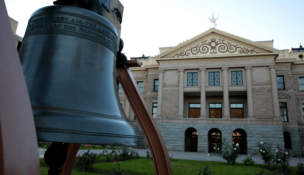Lawmaker warns against bill pushed by vaping industry
Ben Giles//April 29, 2019//[read_meter]

Some say a measure to increase the age for buying tobacco and vape products to 21 comes at too high a cost, at least if lawmakers agree to a proposal pushed by the vaping industry.
Sen. Heather Carter, school leaders and members of the health community warned lawmakers against agreeing to legislation pushed by Juul Labs and other vaping companies that would preempt local governments from regulating the sale and marketing of tobacco and vaping products.
“What big tobacco wants is the preemption of any local municipality from restricting sales and marketing. That’s their big goal above everything else,” said Carter, R-Cave Creek.
An amendment to SB 1147, the bill backed by the vaping industry, attempts to ease those concerns. It states that the bill doesn’t prohibit municipalities, school districts, charter schools or stadium districts from regulating the sale or marketing of tobacco products on their own property – essentially public buildings.
And it would allow the regulation of tobacco and vaping products by local zoning ordinances, but only if those ordinances are “reasonable.”
The amendment appears to resolve issues raised with the bill’s sponsor, Rep. John Allen, in a House health committee in March.
Carter calls it lipstick on a pig.
“Where in statute is the word reasonable defined?” she said. “If they really wanted to allow cities and towns to create zoning ordinances to regulate the location of vape shops, why didn’t they just say that we’re not preempting any zoning ordinance?”
Carter warned that municipalities would be dragged into costly legal battles over the meaning of the word. And lawmakers could hassle municipalities trying to regulate vape shops – legislators could be prompted by a vaping company to file complaints with the Attorney General, who according to law would be compelled to investigate local ordinances.
That law also puts local shares of statewide revenues at risk, Carter said, if a municipality’s zoning ordinance is determined to be unreasonable.
“Then it’s even worse than the status quo, because now they’re subject to losing their tax revenue,” she said.
Gibson McKay, a lobbyist for the Vapor Technology Association, said the word reasonable is already defined by the courts, and described it as typical language when it comes to zoning law. And he made no bones about the industry’s desire to get rid of what he called a “hodge podge” of local tobacco laws.
So while the amendment would preserve smoke-free zones in public buildings, it wouldn’t protect laws like a longstanding fee on tobacco retailers charged by the city of Tucson.
“We’re not running from that. We’re not hiding from that. That’s absolutely what we’re trying to do,” McKay said. ”Much like liquor, do you want the liquor laws in Sedona to be different than they are in Sierra Vista? No. We regulate them in a uniform way.”
Carter said such a regulatory framework sets the tobacco industry up to make an end run around the law. If lawmakers approve SB 1147 with the preemption language, tobacco companies will “only have to work at the state level to advance their corporate agenda, and their corporate agenda includes addicting an entirely new generation to their products,” Carter said.
Tobacco companies would save themselves the trouble of lobbying at the local level, and could refocus their efforts on “manipulating” language like the definition of reasonable, she said.
Carter warned that adopting language preferred by the vaping industry would be a repeat of what she called a 2013 legislative error, when legislators passed a law that created a separate classification for e-cigarettes from tobacco – legislation the tobacco industry supported.
Carter said that mistake coincided with an uptick in youth use of vaping products, an issue that has become a public health crisis, she added.
As an alternative, Carter has proposed a measure that raises the smoking age to 21, as well as redefine vaping products – the nicotine juices and vaping devices – as tobacco.
The tobacco industry shouldn’t be trusted to provide a solution to a problem they helped create, she said.
“You know what they say: fool me once, shame on you, fool me twice, shame on me. We should not make the mistake again,” Carter said.
















